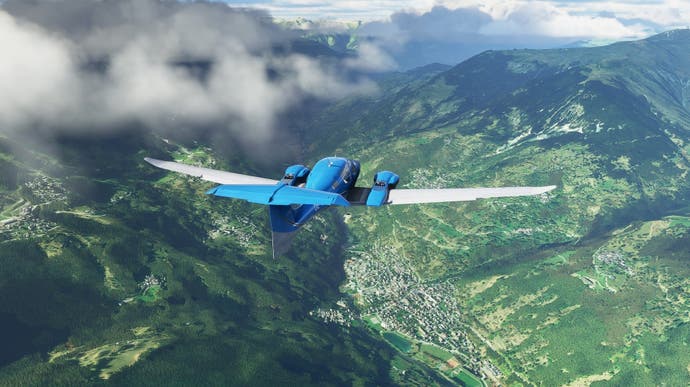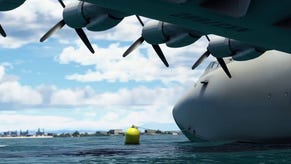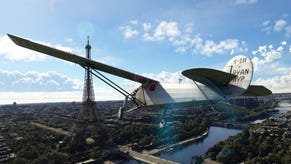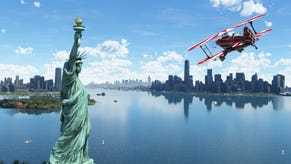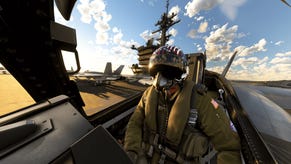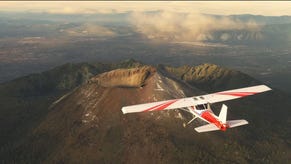Flying by memory
Visiting a family holiday home in Microsoft Flight Simulator.
In the South of France, about 45 minutes' drive northeast of Avignon, past Carpentras with its medieval walls and its giant superstore its town-consuming market on Fridays, there's a picturesque little village called Le Barroux, piled up on a hill on the edge of the Rhône plain and topped with a chunky, sand-coloured castle, all in classic Provençal style. Behind the village, looming moodily over the scrubby hills and the silent plateaux and the vast apron of busy, fertile flatland, is the solitary, lunar peak of the Mont Ventoux: feared Tour de France stage, géant de Provence, lonely harbinger of the massed ranks of the Alps to the east.
In the village there's a house with an orchard of olive and apricot trees. It was converted from a barn in the late 60s by my grandfather, an architect from Geneva. It's still owned by my mum and her sisters. I've been holidaying there since I was born (I was named after the olive trees); I've made a visit in more than half of the last fortysomething years. But not since 2018, because I had a baby and then you-know-what happened. Maybe next year. But my mum and my aunts aren't getting any younger, and the diaspora of cousins is far-flung and thinly spread, and the place is getting harder to use and maintain with every passing season. I can feel time running out on it.
So when, inspired by Bertie's question, I finally fired up Microsoft Flight Simulator for the first time this week, I knew there was only one place I wanted to see.
My Cessna ascended from the airfield at Avignon and crawled patiently over a lattice of market towns, vineyards and business parks towards the Ventoux. Navigating is easy when a single kilometer-high mountain dominates the entire landscape. To its left, extending towards me, the jagged limestone teeth of the Dentelles de Montmirail; I knew the slot in this range of foothills where the village should be. There was Caromb, the neighbouring village with the good wine available cheap straight from the vineyard. I tweaked my course to the left. There was the bright blue splodge of the lac du Paty, a swimming spot high in the hills; and there was the D938 snaking along the valley floor; and there was Le Barroux itself, an unmistakable shape even without the distinctive silhouette of its château (maybe it's in the world update that's still downloading); and there the little square of green that must be the orchard; and there the little cube of the house tucked neatly in the orchard's corner.
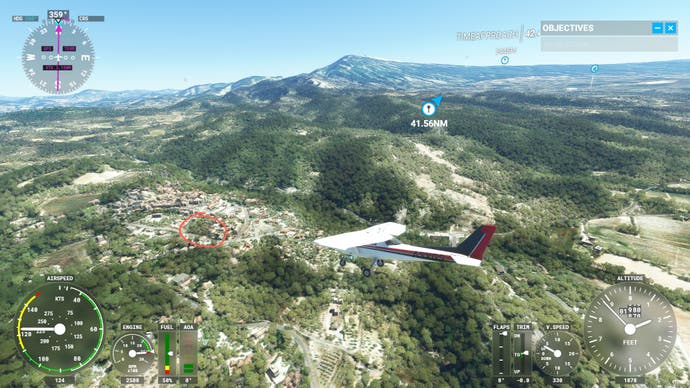
My heart raced. It's a commonplace wonder in this day and age, really - it's just a fancy version of Google Maps - but it packs an emotional punch all the same. Perhaps it's the way the landscape comes alive from this vantage point, suspended somewhere between the flattening, objective gaze of the satellite and the subjective map built in the pathways of your memory. Somehow, this is more than a map. It's a landscape that you know by heart, by instinct. You don't just recognise how it looks but how it feels. You know its moods.
After seeing the village, I decided to take my Cessna over the bald summit of the Ventoux. But it was my first flight and I didn't know what I was doing. I didn't climb fast enough, and then, as the deep green flanks of the mountain rose to meet me, I climbed too fast; the AI had to take over to prevent a stall. The little Cessna laboured, but it wasn't going to make it. Like so many before me, I came a cropper on the slopes of the Mont Ventoux, having underestimated the giant of Provence.
